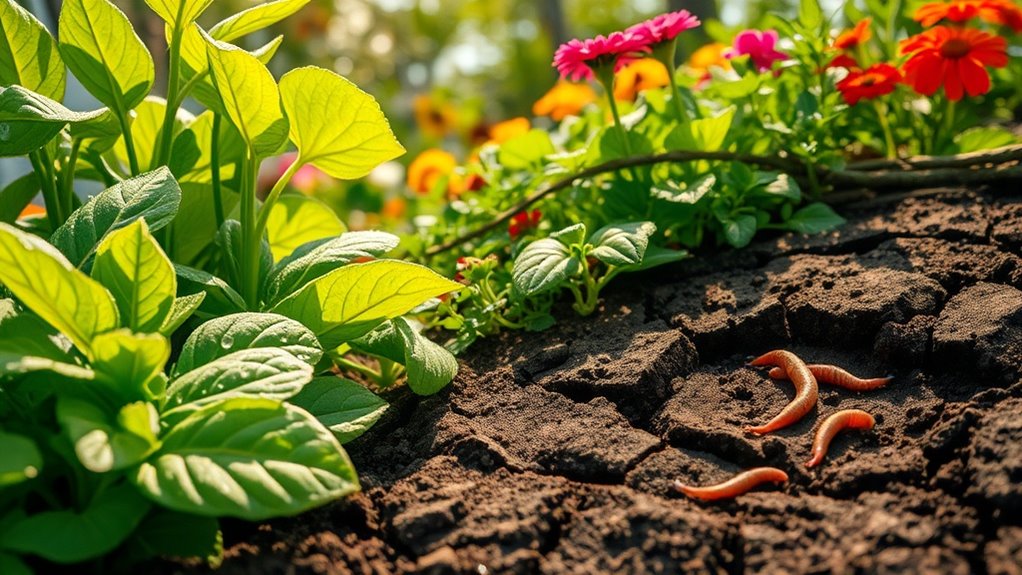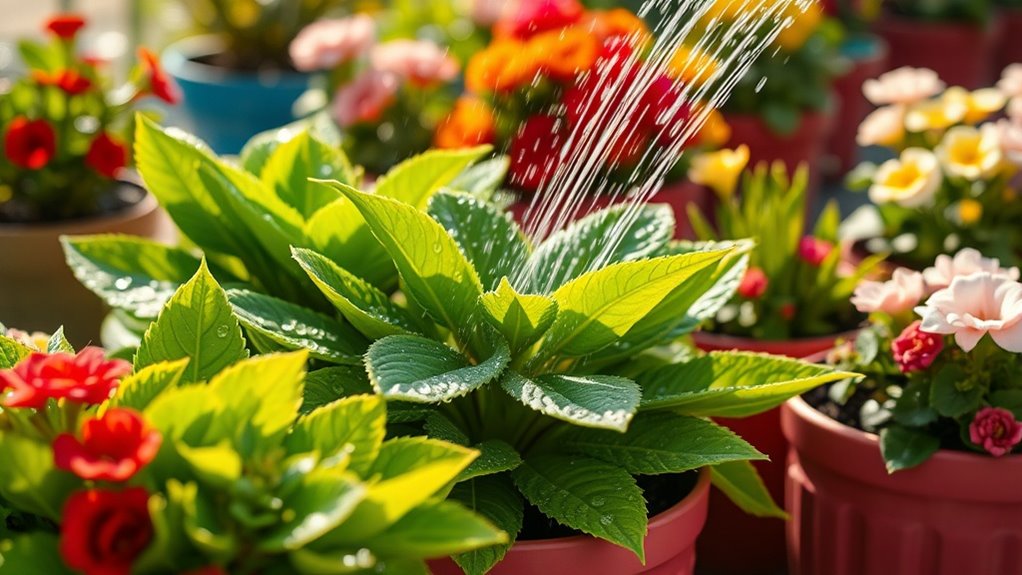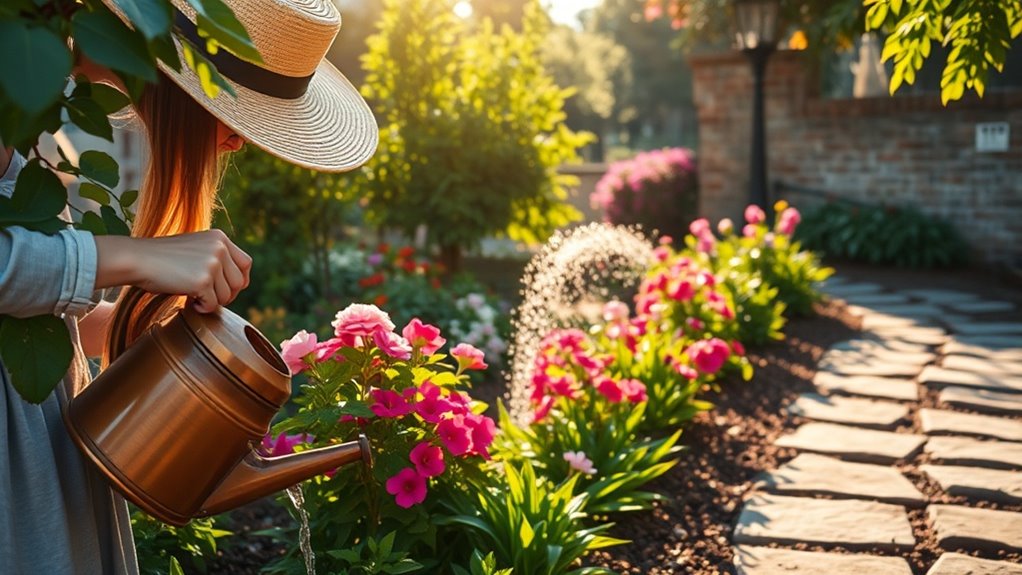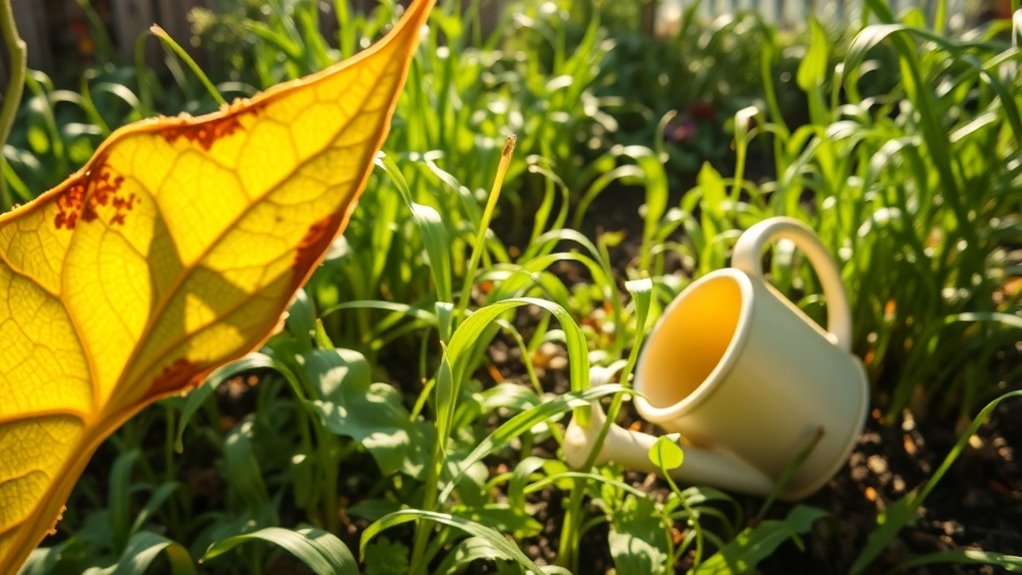The Truth About Popular Gardening Myths
Understanding gardening myths is crucial, recognizing their potential pitfalls is essential. Many common beliefs can misguide your practices and harm your plants. For example, did you know that marigolds don’t ward off all pests? Moreover, watering your plants at night doesn’t automatically lead to root rot. If you’re ready to uncover the reality behind these myths, you might be surprised by what you discover next.
Myth: Marigolds Deter All Pests
While many gardeners swear by marigolds for pest control, the belief that these colorful flowers deter all pests is misleading.
In fact, marigolds mainly repel specific insects, such as nematodes.
Relying solely on them can perpetuate gardening myths, leading you to neglect other essential pest management strategies.
It’s crucial to integrate diverse techniques for comprehensive pest control in your garden. Implementing eco-friendly pest control methods can enhance your garden’s health while effectively managing unwanted insects.
Myth: Watering Plants at Night Causes Root Rot
Watering plants at night is often blamed for causing root rot, but this notion is largely unfounded.
Root rot typically results from overwatering and poor drainage rather than timing. If your soil drains well and you don’t water excessively, nighttime watering won’t harm your plants.
In fact, it can reduce evaporation and ensure your plants receive adequate moisture when they need it most.
Myth: Coffee Grounds Are Always Beneficial for Soil
Many gardeners believe that coffee grounds are a magical additive for enriching soil, but this idea is overly simplistic.
While coffee grounds can improve drainage and provide some nutrients, they’re high in nitrogen and can alter pH levels when used excessively.
You should balance coffee grounds with other organic materials to avoid potential soil imbalances that could negatively affect plant health.
Myth: Pruning in Late Summer Harms Plants
Although some gardeners worry that pruning in late summer might harm their plants, this practice can actually be beneficial when done correctly.
Pruning can:
- Encourage healthier growth by removing dead or diseased branches
- Improve air circulation, reducing pest infestations
- Allow for better light penetration, supporting overall plant health
When you prune thoughtfully, your plants can thrive well into the fall. Additionally, avoiding bad habits such as excessive pruning at once can optimize the benefits and ensure your garden remains robust.
Myth: More Sunlight Equals Faster Growth
While it might seem intuitive that more sunlight leads to faster plant growth, this isn’t necessarily the case.
Plants require a balance of light, nutrients, and water to thrive. Excessive sunlight can lead to stress, burning, or stunted growth, especially for species adapted to shadier environments.
Understanding your plants’ specific light needs is crucial for promoting healthy growth and avoiding potential damage. Additionally, outdated garden myths can often mislead gardeners into making suboptimal choices for their plants’ care.





